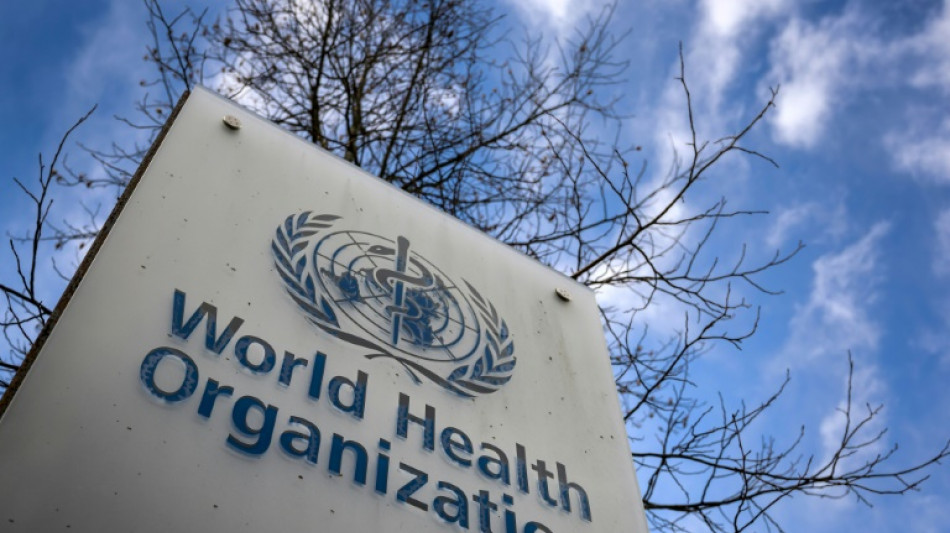
-
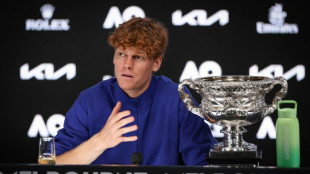 Sinner denies beneficial treatment in doping scandal ahead of Rome return
Sinner denies beneficial treatment in doping scandal ahead of Rome return
-
Eurozone economy grows more than expected despite US tariff turmoil
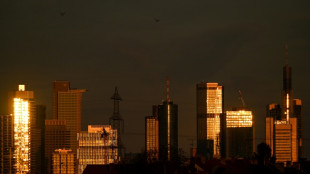
-
 Toulouse hooker Mauvaka out of Champions Cup semi
Toulouse hooker Mauvaka out of Champions Cup semi
-
Germany's next finance minister, 'bridge-builder' Lars Klingbeil
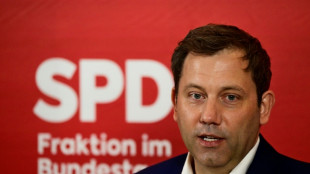
-
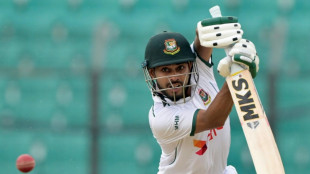 Mehidy century puts Bangladesh in command against Zimbabwe
Mehidy century puts Bangladesh in command against Zimbabwe
-
Steelmaker ArcelorMittal warns of uncertainty
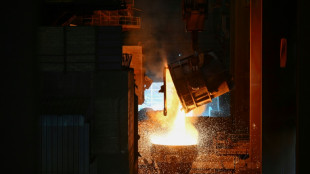
-
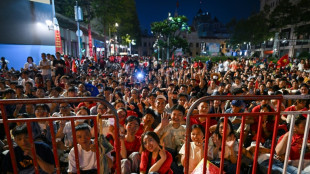 Vietnam's Gen-Z captivated by 50-year-old military victory
Vietnam's Gen-Z captivated by 50-year-old military victory
-
Moroccan-based cardinal says Church does not need Francis 'impersonator'
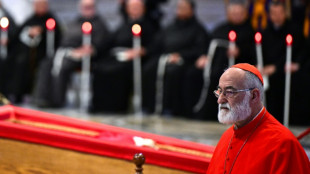
-
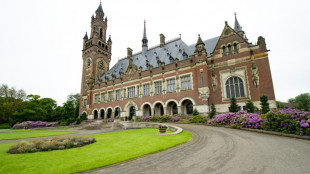 US official tells UN top court 'serious concerns' over UNRWA impartiality
US official tells UN top court 'serious concerns' over UNRWA impartiality
-
Jeep owner Stellantis suspends outlook over tariffs
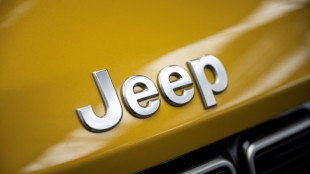
-
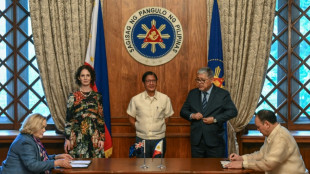 New Zealand, Phillippines sign troops deal in 'deteriorating' strategic environment
New Zealand, Phillippines sign troops deal in 'deteriorating' strategic environment
-
Aston Martin limits US car imports due to tariffs

-
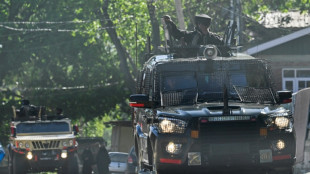 Pakistan says India planning strike as tensions soar over Kashmir
Pakistan says India planning strike as tensions soar over Kashmir
-
Australian triple-murder suspect allegedly cooked 'special' mushroom meal
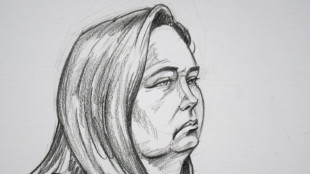
-
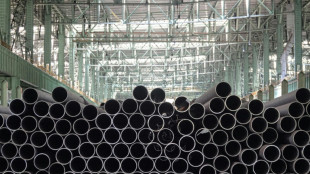 Most stock markets rise despite China data, eyes on US reports
Most stock markets rise despite China data, eyes on US reports
-
TotalEnergies profits drop as prices slide
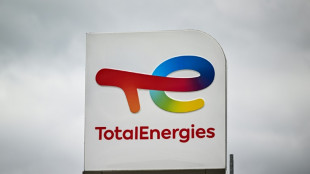
-
 Volkswagen says tariffs will dampen business as profit plunges
Volkswagen says tariffs will dampen business as profit plunges
-
Jeep owner Stellantis suspends 2025 earnings forecast over tariffs
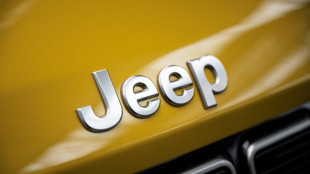
-
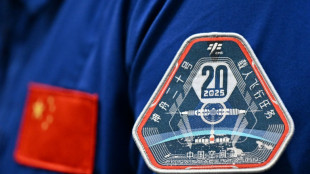 China's Shenzhou-19 astronauts return to Earth
China's Shenzhou-19 astronauts return to Earth
-
French economy returns to thin growth in first quarter
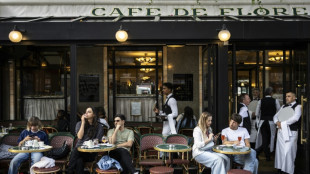
-
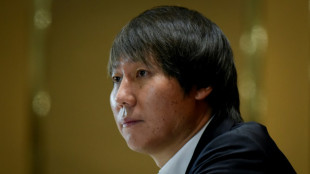 Ex-Premier League star Li Tie loses appeal in 20-year bribery sentence
Ex-Premier League star Li Tie loses appeal in 20-year bribery sentence
-
Belgium's green light for red light workers

-
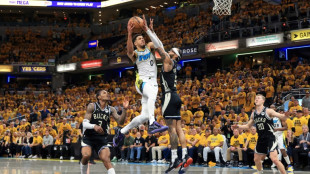 Haliburton leads comeback as Pacers advance, Celtics clinch
Haliburton leads comeback as Pacers advance, Celtics clinch
-
Rahm out to break 2025 win drought ahead of US PGA Championship
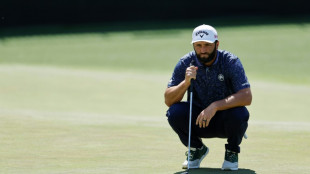
-
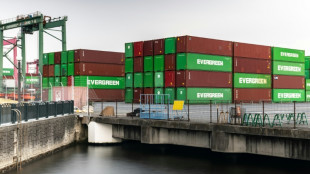 Japan tariff envoy departs for round two of US talks
Japan tariff envoy departs for round two of US talks
-
Djurgarden eyeing Chelsea upset in historic Conference League semi-final

-
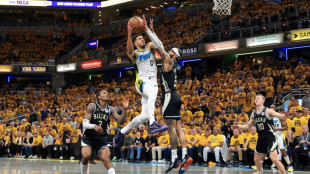 Haliburton leads comeback as Pacers advance, Pistons stay alive
Haliburton leads comeback as Pacers advance, Pistons stay alive
-
Bunker-cafe on Korean border paints image of peace
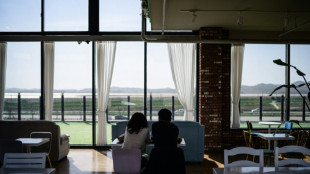
-
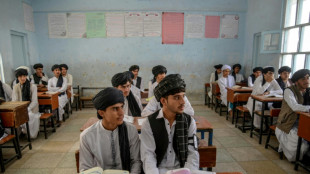 Tunics & turbans: Afghan students don Taliban-imposed uniforms
Tunics & turbans: Afghan students don Taliban-imposed uniforms
-
Asian markets struggle as trade war hits China factory activity
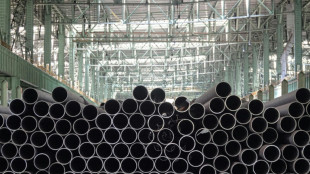
-
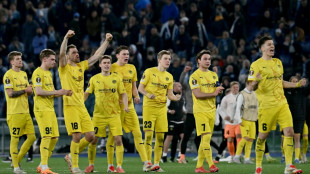 Norwegian success story: Bodo/Glimt's historic run to a European semi-final
Norwegian success story: Bodo/Glimt's historic run to a European semi-final
-
Spurs attempt to grasp Europa League lifeline to save dismal season
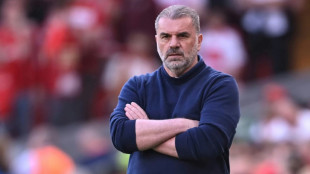
-
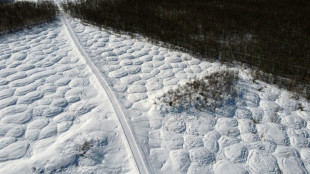 Thawing permafrost dots Siberia with rash of mounds
Thawing permafrost dots Siberia with rash of mounds
-
S. Korea prosecutors raid ex-president's house over shaman probe: Yonhap
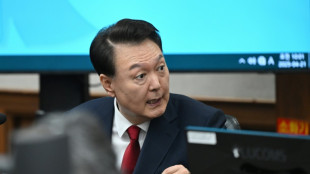
-
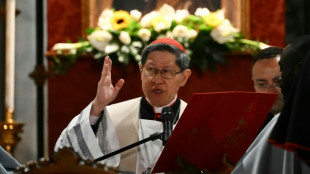 Filipino cardinal, the 'Asian Francis', is papal contender
Filipino cardinal, the 'Asian Francis', is papal contender
-
Samsung Electronics posts 22% jump in Q1 net profit
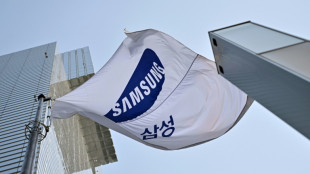
-
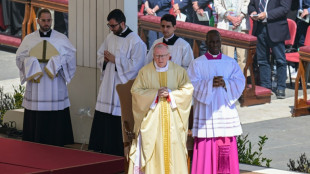 Pietro Parolin, career diplomat leading race to be pope
Pietro Parolin, career diplomat leading race to be pope
-
Nuclear submarine deal lurks below surface of Australian election
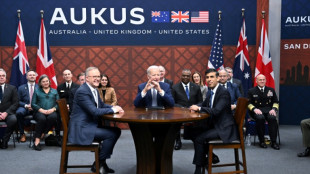
-
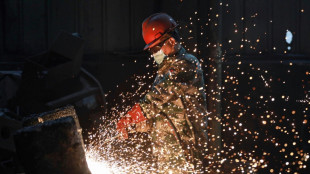 China's manufacturing shrinks in April as trade war bites
China's manufacturing shrinks in April as trade war bites
-
Financial markets may be the last guardrail on Trump
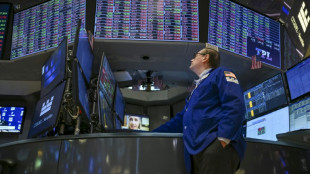
-
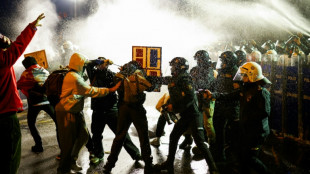 Swedish journalist's trial opens in Turkey
Swedish journalist's trial opens in Turkey
-
Kiss says 'honour of a lifetime' to coach Wallabies at home World Cup
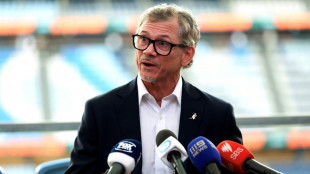
-
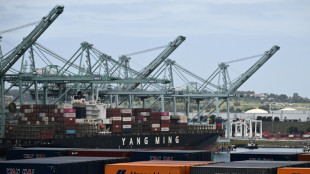 US growth figure expected to make for tough reading for Trump
US growth figure expected to make for tough reading for Trump
-
Opposition leader confirmed winner of Trinidad elections
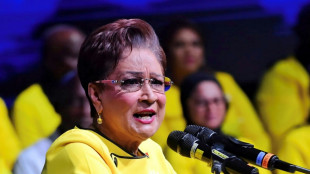
-
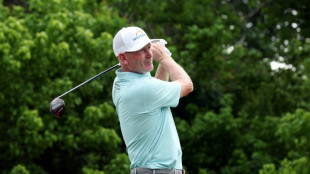 Snedeker, Ogilvy to skipper Presidents Cup teams: PGA Tour
Snedeker, Ogilvy to skipper Presidents Cup teams: PGA Tour
-
Win or bust in Europa League for Amorim's Man Utd

-
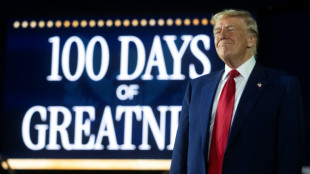 Trump celebrates 100 days in office with campaign-style rally
Trump celebrates 100 days in office with campaign-style rally
-
Top Cuban dissidents detained after court revokes parole
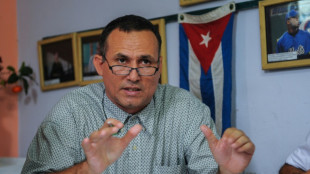
-
 Arteta urges Arsenal to deliver 'special' fightback against PSG
Arteta urges Arsenal to deliver 'special' fightback against PSG
-
Trump fires Kamala Harris's husband from Holocaust board
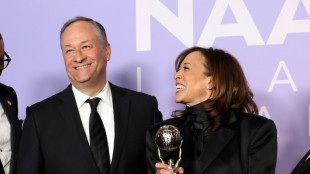

Accord reached 'in principle' over tackling future pandemics: negotiating body
WHO members on Saturday reached agreement over how to tackle future pandemics after three years of discussions, the co-chair of the negotiating body told AFP.
"We have an accord in principle" and the final version will have to be okayed by the various member states, Anne-Claire Amprou, who is also French ambassador for world health, said.
Amprou said delegates would meet on Tuesday in Geneva to put the finishing touches to a landmark text on pandemic prevention, preparedness and response and give it their definitive seal of agreement.
The text will then require the final seal of approval from all World Health Organization members at the World Health Assembly in Geneva at the end of May.
The approval came after a marathon discussion session stretching for almost 24 hours after which delegates broke into enthusiastic applause lasting several minutes.
"This is a very good signal. You are part of an incredible history in the making," said WHO director-general, Tedros Adhanom Ghebreyesus.
"This is a good gift to our children and our grandchildren," said Tedros, who remained ensconced with delegates throughout the night as they thrashed out an agreement.
Several sources told AFP one of the main sticking points as delegates inched their way towards an accord was paragraph 11 of a text extending to some 30 pages on defining technology transfer for production of health products related to pandemics, particularly to benefit developing countries.
Latin American countries are also pushing for facilitation of the transfer.
The issue had been a bone of contention in poorer countries during the Covid-19 pandemic as they saw rich nations hoard vaccine doses and other tests.
Several countries where the pharmaceutical industry is a major economic player oppose the idea of mandatory transfers and have insisted on it being voluntary.
- 'Very constructive and positive' -
According to one delegate, this point has been resolved. But the latest version of the text was as of Saturday morning not available.
For Amprou, "we had to negotiate this week with all the member states in a very constructive and positive manner. There is a real desire to reach an agreement that truly makes a difference and helps prevent, prepare for, and respond to pandemics."
Only experience will tell if the text as proposed can come through the acid test of another pandemic which Tedros has been at regular pains to insist will emerge at some point, we know not when.
The text comes with the traditional multilateral approach for responding to global crises in crisis after US President Donald Trump slashed the international aid programme of what had been by far the world's biggest donor nation.
The United States were absent from the negotiations, after Trump said on his return to the White House that his country will leave the WHO, a move experts say will heighten risks to the global health risk surveillance system.
It was in December 2021, two years after the start of Covid, which killed millions across the globe and brought the world economy to its knees, that WHO members decided a text was of paramount importance.
- 'Lot of upside' -
However, Saturday's text lacks lustre compared with the scale of WHO member states' initial ambitions, James Packard Love, executive director of the Knowledge Ecology international NGO, which has been keenly following the talks, told AFP.
For Love "the initial proposals were put forward by the Secretary were quite ambitious (but) that's not the case now.
"As the negotiations have dragged on, the trade people have come in, the industry, people have come in. And some people ask me, is the agreement so weak now that it's not worth doing? Will it actually change anything that goes through?
"And I tell people that I think there's a lot of upside for getting an agreement."
Michelle Childs, head of policy advocacy at the Drugs for Neglected Diseases Initiative (DNDi), an NGO, told AFP Friday. "The pandemic agreement will not be perfect; it is a product of compromise, and not all ambitions will be met.
"But it will create a crucial new baseline to build on to save lives during the next global health emergency. It is a floor, not a ceiling."
Warning signs of health risks remain, notably H5N1 bird flu, a virus which continues to infect new species, raising fears of eventual transmission between humans.
Another fear is measles outbreaks in 58 countries resulting from insufficient vaccination rates due to mistrust of vaccines caused by misinformation, as well as mpox which is wreaking havoc in Africa.
R.Braegger--VB
